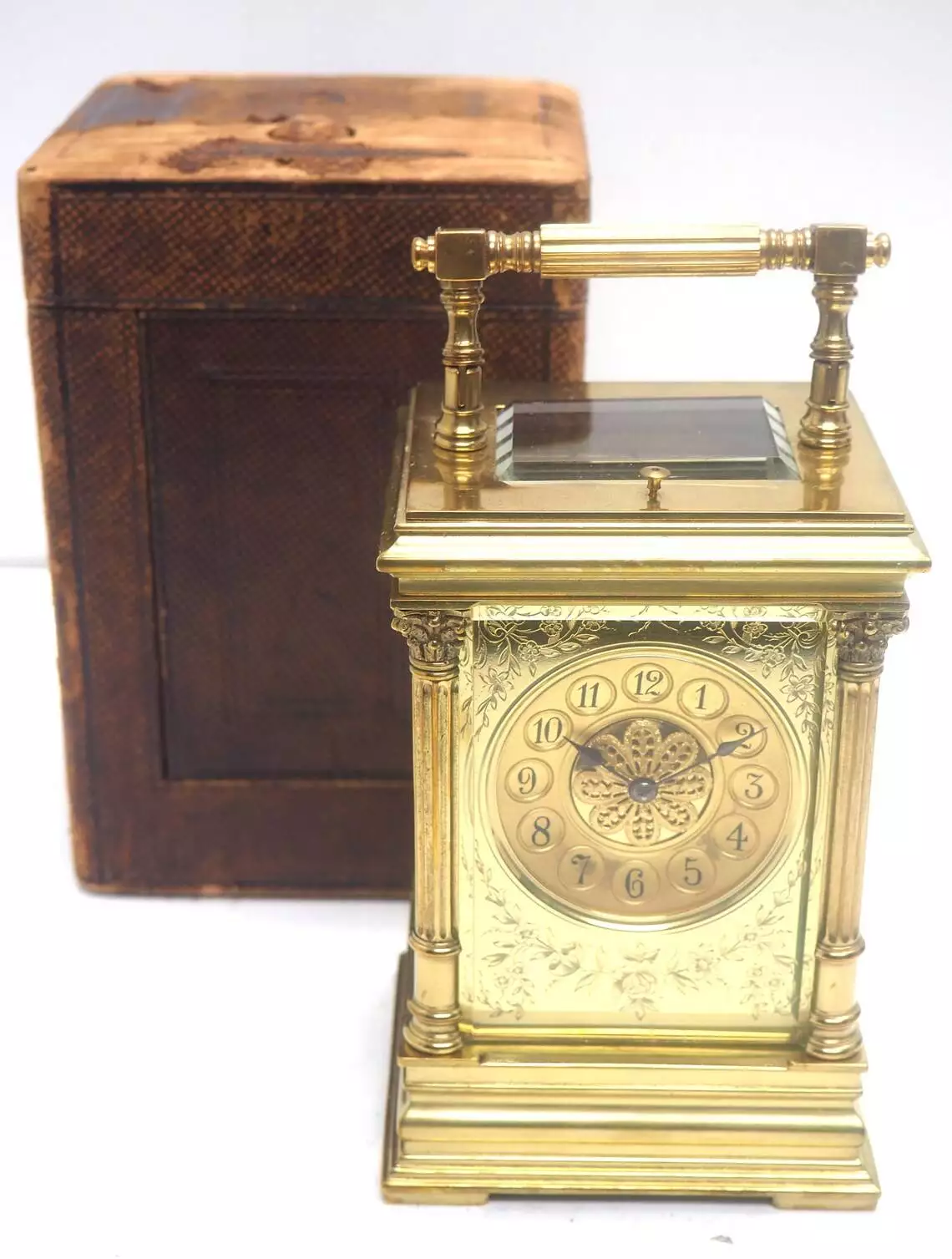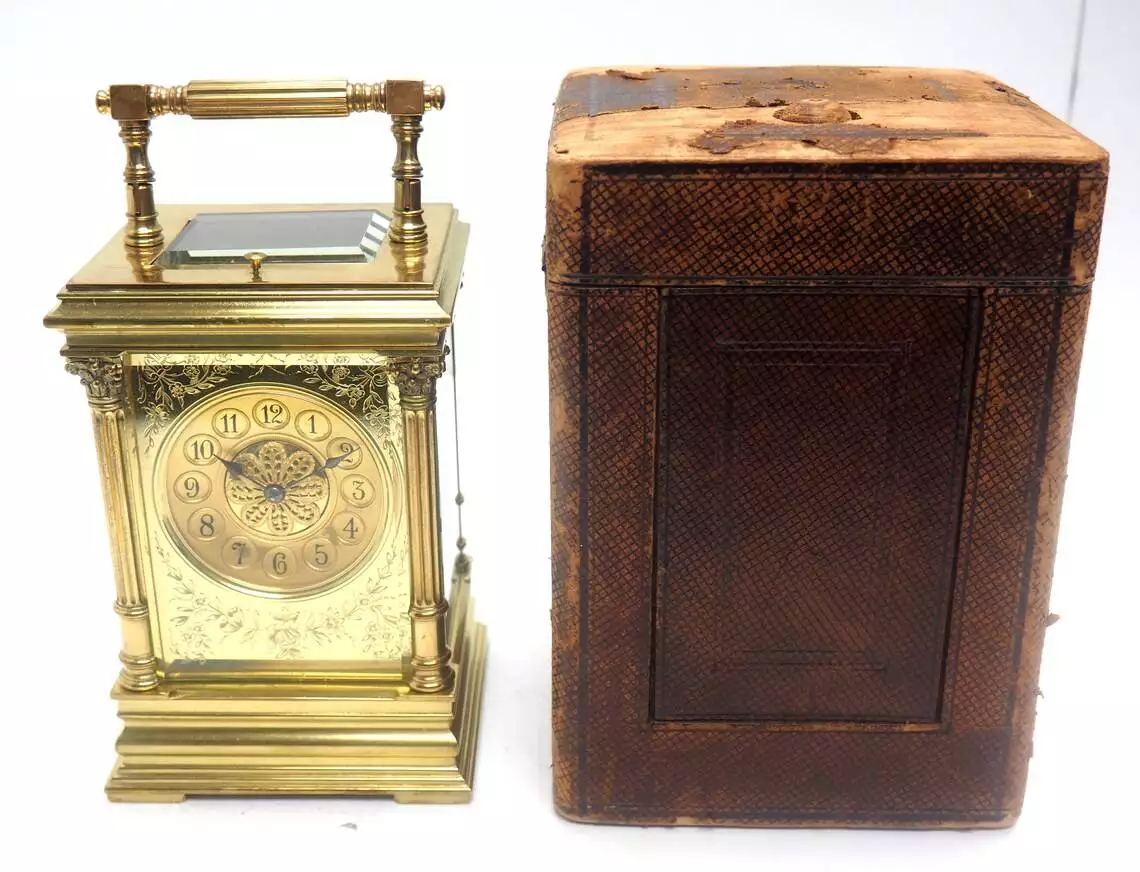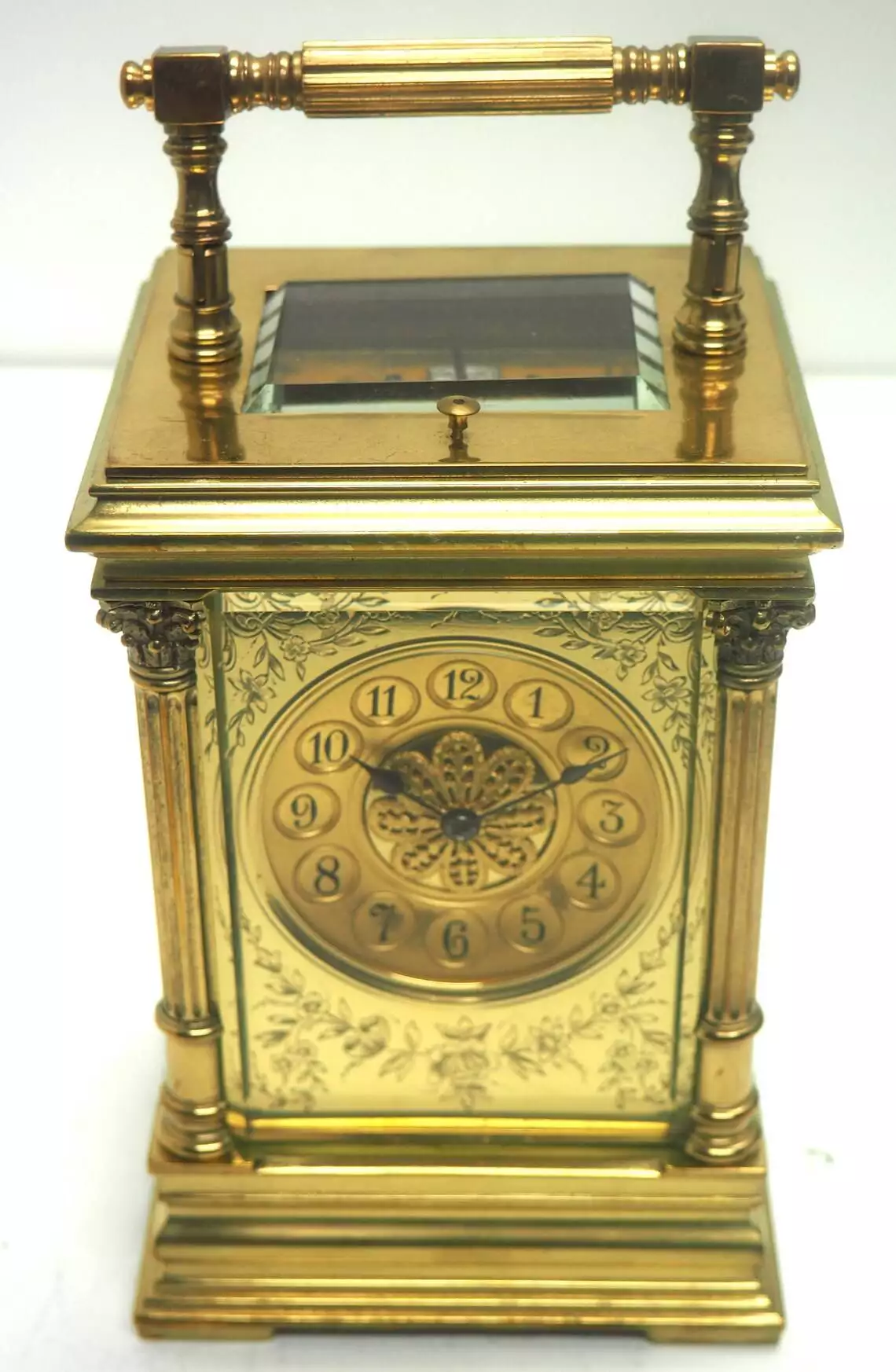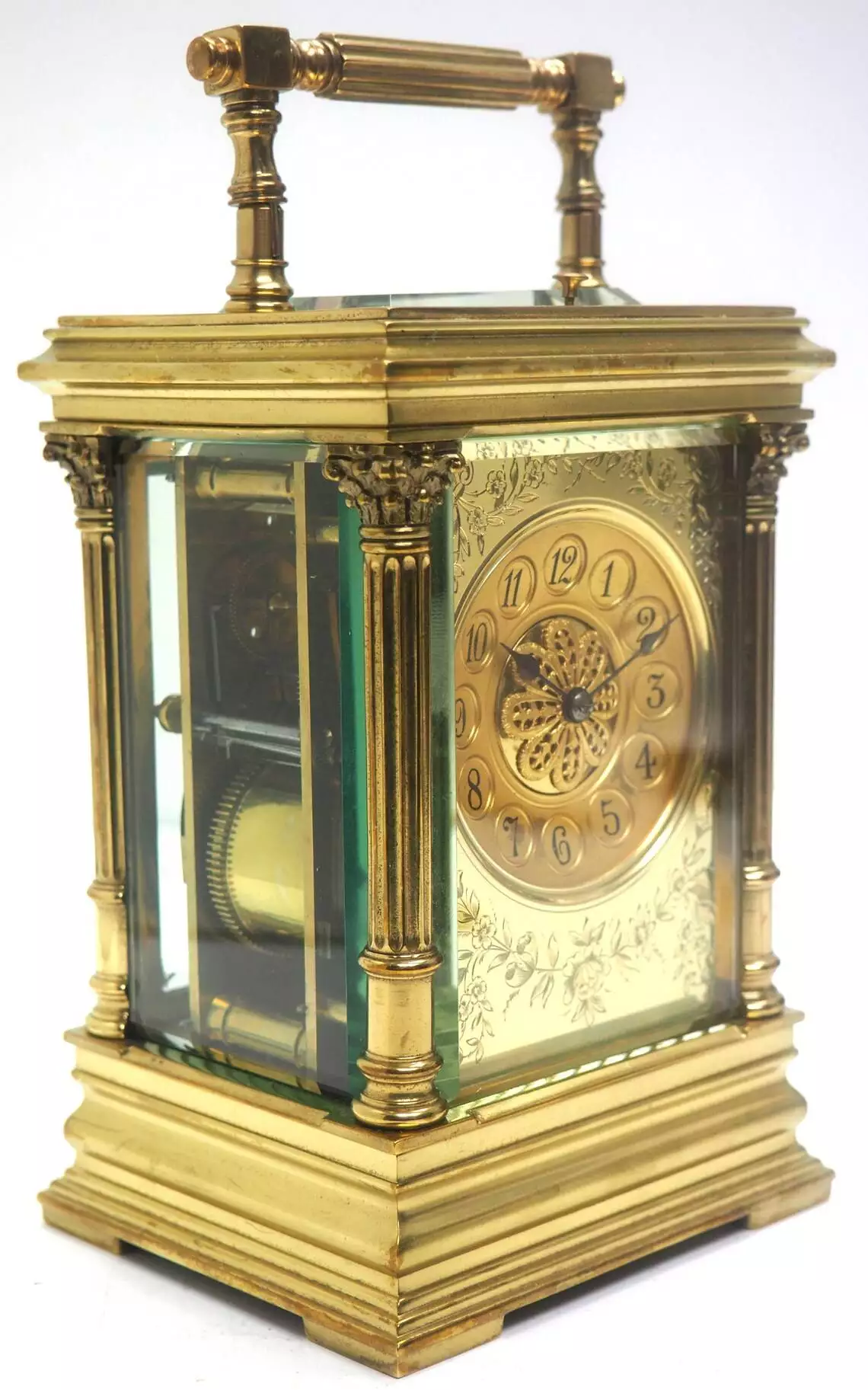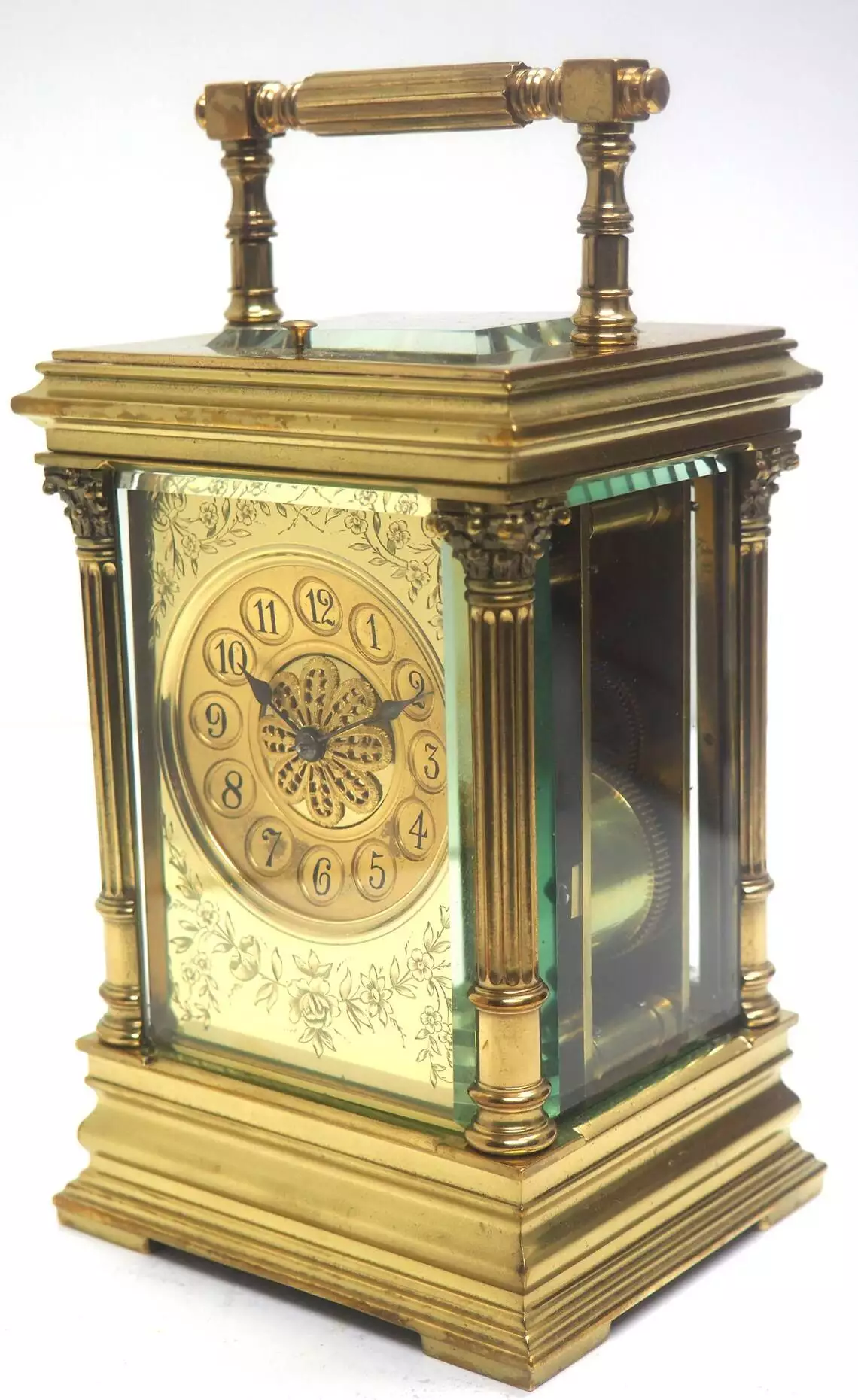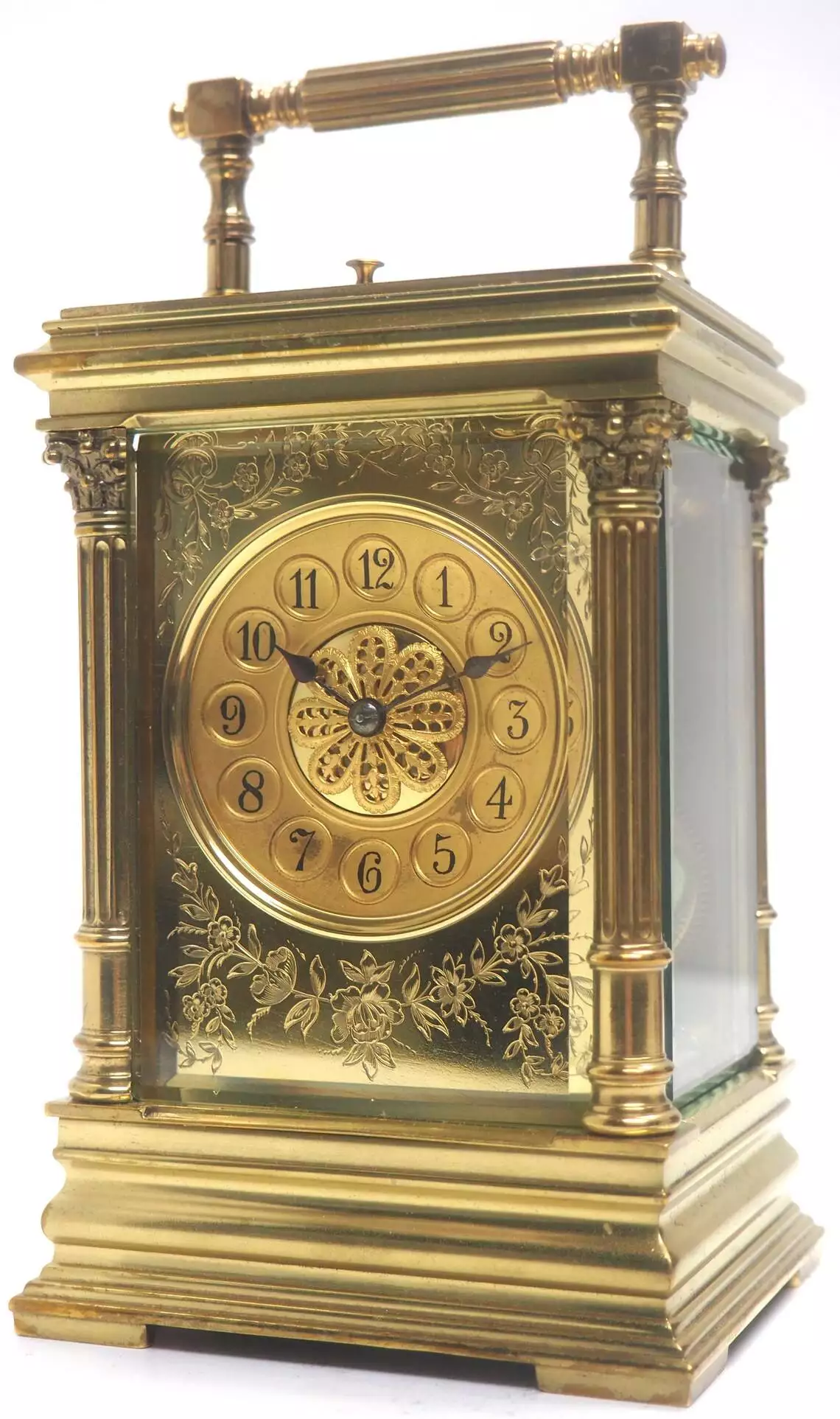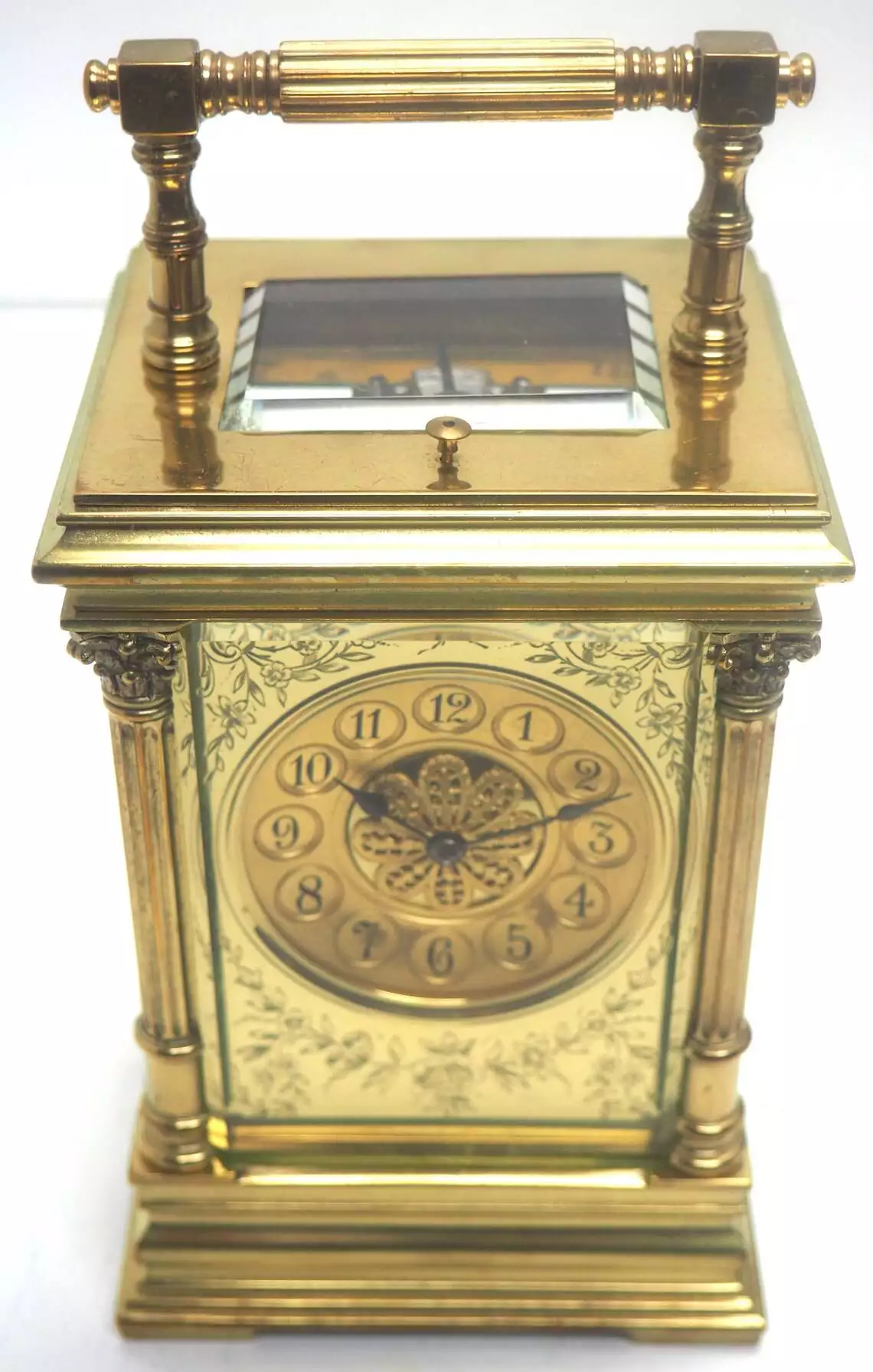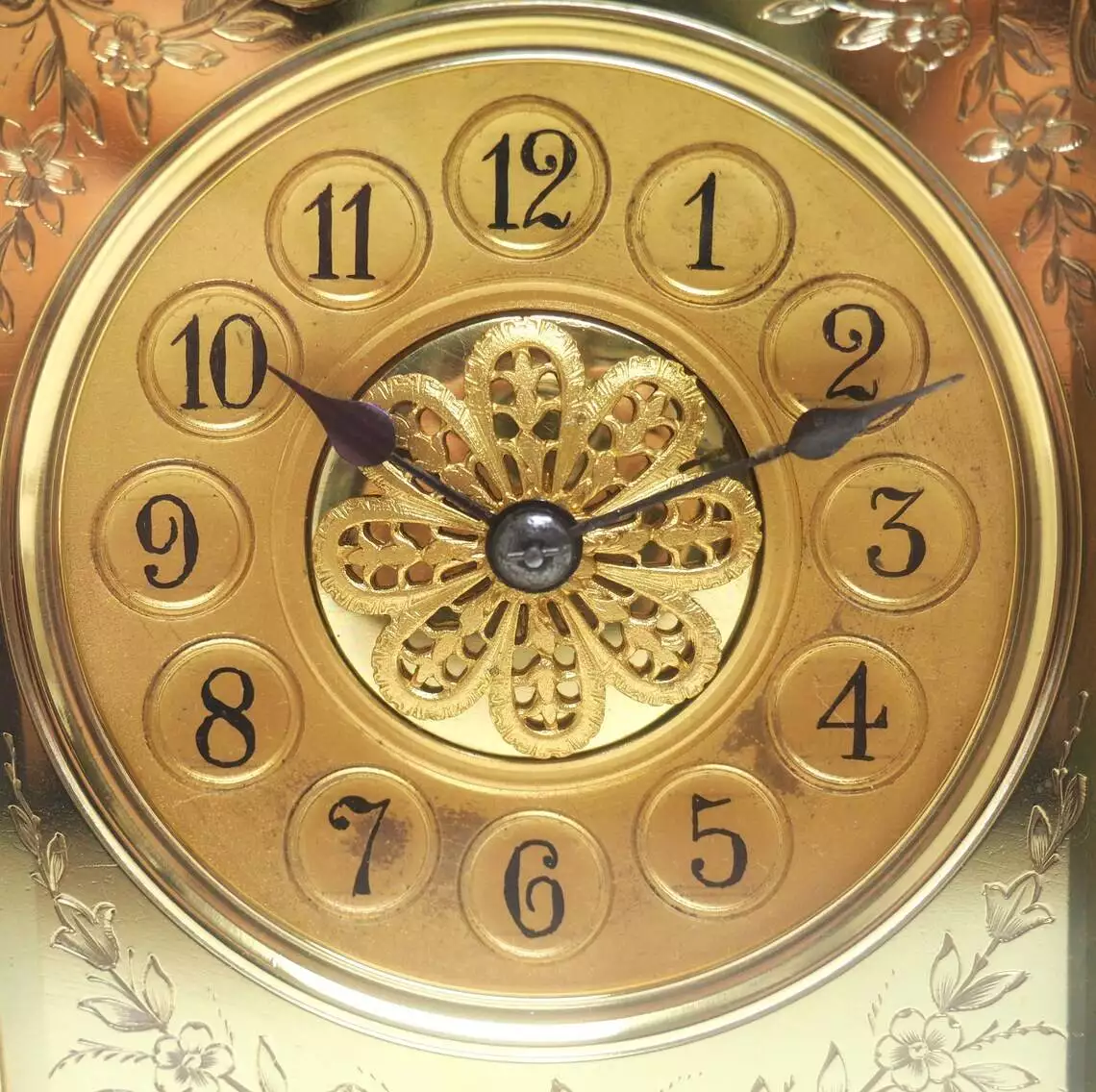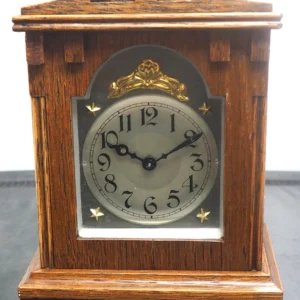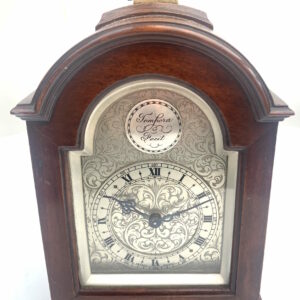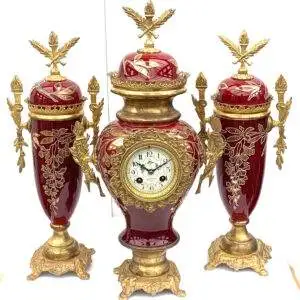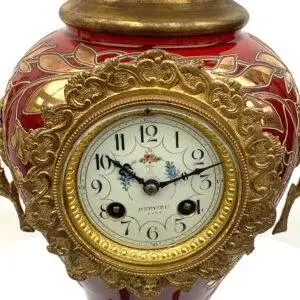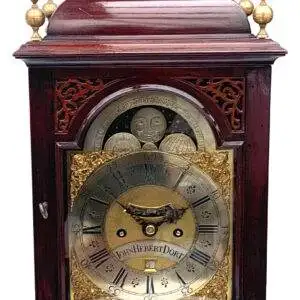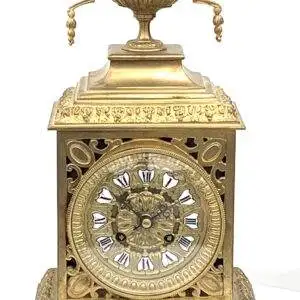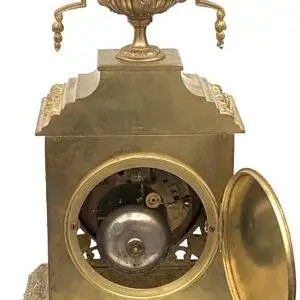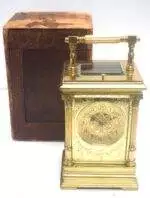
French 8-Day Etched Carriage Clock With Original Leather Case
£1,400.00
You can even see the intricate details on its polished movement. This exquisite clock is sure to make an excellent addition to any collection due to its beautiful design and quality craftsmanship! Accompanied with it’s original leather case for protection.
- Dated from the 19th Century
- Free Delivery within the UK
- French Heritage
- Original Leather Case Included
- Hand Etched Design
- Condition: Good
Antique Carriage Clock
The Design
The French Carriage Clock is a rare antique that was hand crafted with stunning ormolu. This piece comes with original etched artwork that depicts a floral design on the top of the face of the antique piece. The hands of the clock are treated as a centre piece of a flower, whilst roses and wild bushes unravel in the background of the carriage’s face. This exquisite clock is the perfect decoration for your mantel, desk, or book shelf. The delicate floral design etched on the original case is both elegant and charming. With a polished movement and bevelled stepped case, this piece embodies all that is graceful in French design.
This French Carriage Clock is a true work of art. The original finish on the case is in pristine condition, and the clock works beautifully. You can tell that this clock is from a time when they made things to last. The high quality of this piece is evident, with its original finish largely intact and original lever escapement still in place, we can also tell from it’s corners the inspiration of French Colthinem columns in each corner, inspired by historical architecture.
Accompanied with it’s original Leather casing, this antique is a real find, as it’s often difficult to find a timepiece that is still available with it’s casing from the 1800’s, this traditional leather casing is extremely durable and heavy, there is some obvious wear and tare from the course of time and transportation on the leather casing, however it will protect this vintage collectible perfectly from all exterior damages.
Measures 20cm high with handle up by 10cm wide & 9cm deep dial is 7cm in diameter
The History
Whilst it’s clear to see the inspiration behind this clock is drawn from architecture, nature and beauty, there are many things that contribute to the history of this clock. As with traditional Carriage Clocks, the design resembles similar pieces, with it’s handle sitting at the top made from gilt-brass, the same as it’s casing. This clock is believed to have been hand etched and crafted in the 19th Century (Circa 1860-1890). Discovering the History of this particular clock can be very beneficial for adding historical value to this fantastic piece.
What is an Ormolu Clock?
Ormolu is known often as Gilt Bronze, it is most popular for furniture pieces, antiques and home décor items from the 18th-19th Century, you may see it used on clocks, ornaments, mantel decorations, photo frames, candlesticks and vases. Ormolu is made from applying finely ground high-carat gold-mercury amalgam to an object of bronze.
Why Does My Carriage Clock Keep Stopping?
Are you having difficulties with your carriage clock? Often a carriage clock can begin to break down for a couple of reasons, from not being properly cleaned and maintained ( requiring oiling and dusting), or possibly damages to your pendulum causing a out of beat swing to allow the clock to stop earlier than its 7-8 day schedule. Examining your clock is the best way to truly understand it’s issues, most clocks require a gentle maintenance and clean every few months. Begin by following our clock cleaning guide and examining your clock for any internal damages.
Can You Overwind a Carriage Clock?
No, simply put it’s actually really difficult to ‘overwind’ any type of clock, in fact it’s impossible to overwind a clock, however you can wind a clock until you damage it’s internal mechanisms. You’ve likely not overwound your carriage clock, but damaged an internal cog or spring, take this to your local clock repair or horologist for a thorough inspection.

